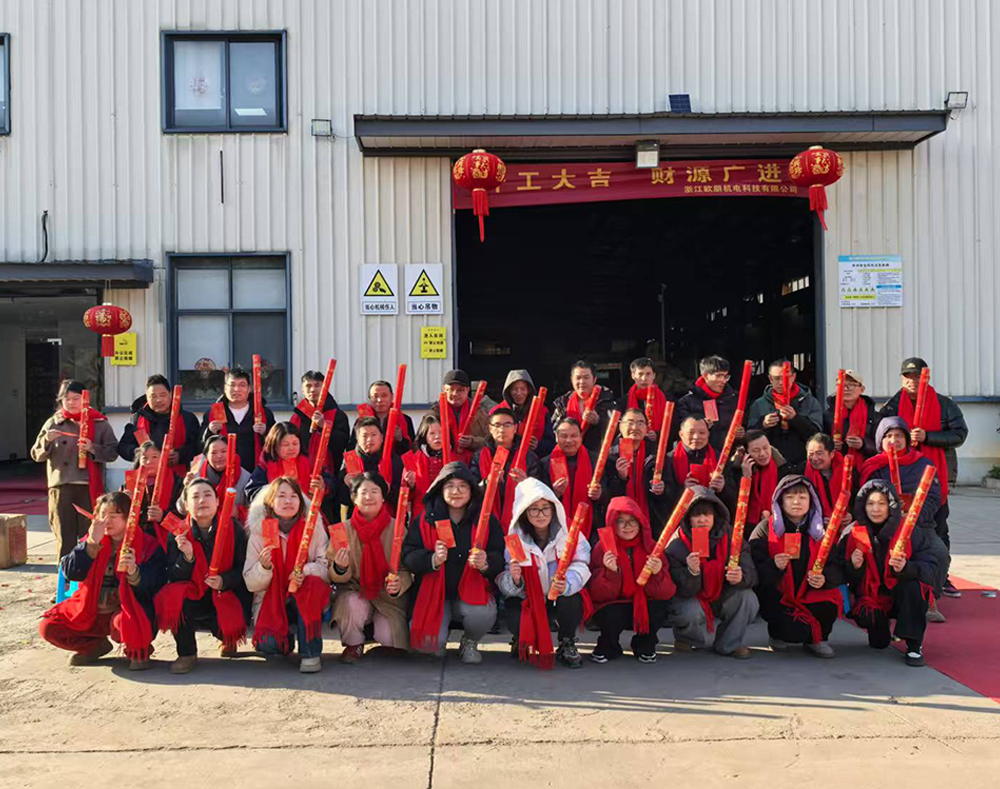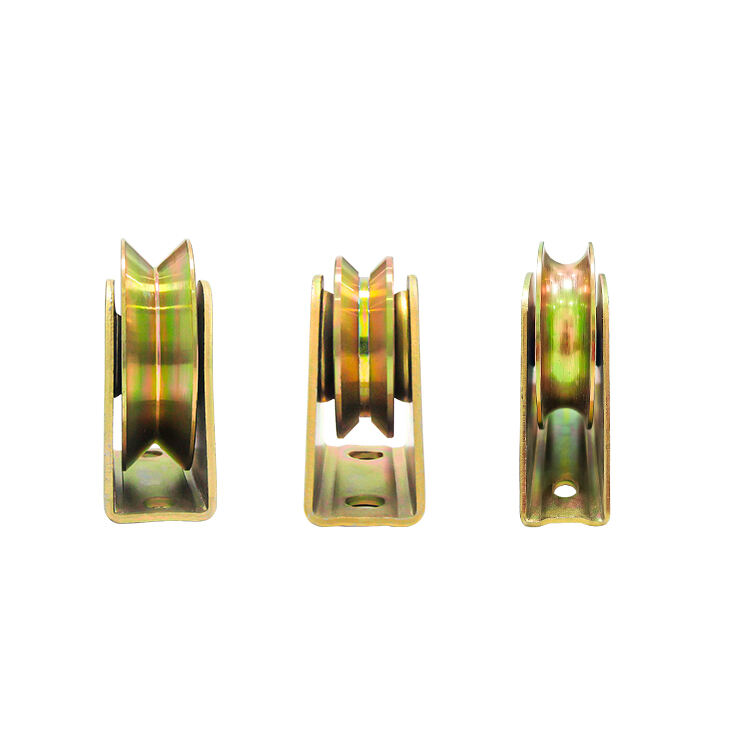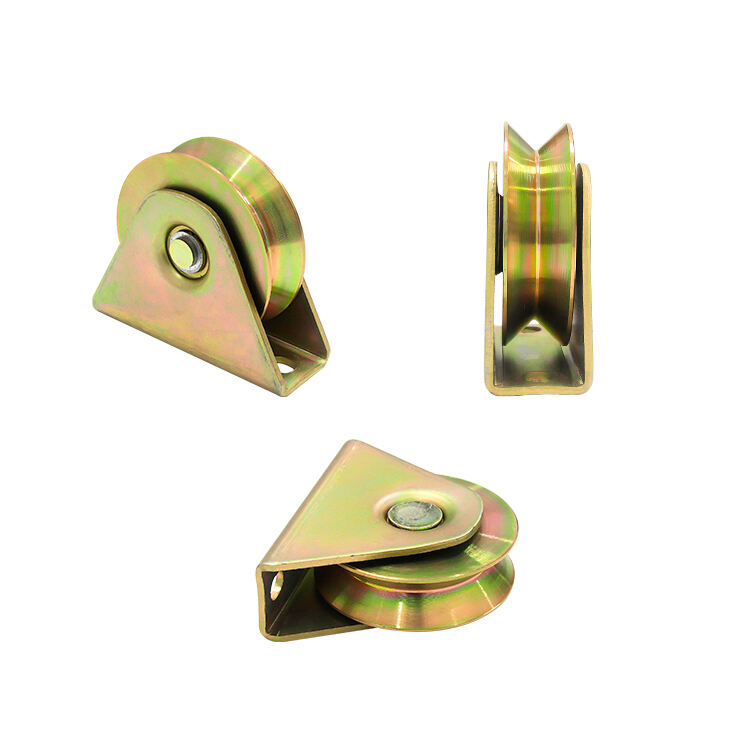Importance of Anti-Rust Coating in Sliding Gate Wheels
Preventing Corrosion in Harsh Environments
Sliding gate wheels need protection against rust, especially where they're exposed to coastal air or industrial chemicals. When metal parts come into contact with moisture, salt spray, or chemical fumes, they start breaking down pretty fast. The gates just won't last as long before needing repairs or replacement. A study by corrosion engineers actually showed that plain steel begins showing signs of rust damage within days when left unprotected in these environments. Applying proper anti-rust coatings makes all the difference though. These protective layers keep the metal safe from environmental attacks, so sliding gates continue functioning properly even after years of exposure to tough conditions.
Extending Lifespan of Sliding Gate Systems
Sliding gate systems last much longer when we apply proper anti rust technology. The gates just don't break down as quickly because they're better protected from all that weather damage. Most people notice their sliding gate wheels stay functional for years instead of needing replacement every couple months. Research shows these protective coatings can double the life of metal components in many cases, though results do vary based on local climate conditions. Regular maintenance with good anti corrosion treatments prevents those sudden breakdowns nobody wants to deal with at 3am. Safety remains top priority too since well maintained gates operate smoothly without unexpected malfunctions.
Reducing Maintenance Costs Over Time
Adding rust protection to sliding gate wheels actually pays off big time in the long run. Without proper coating, those wheels tend to eat up maintenance budgets pretty fast when they start needing constant checking and fixing. When businesses spend on good quality anti-rust treatments from day one, it's really just smart planning for lower repair bills down the road. According to industry reports, companies that coat their gate wheels properly see around 30% less spending on maintenance work. The money saved isn't all that matters either these coated wheels stay functional longer so there's less chance of unexpected breakdowns disrupting daily operations at warehouses, factories, or anywhere gates get heavy use.
Types of Sliding Gate Wheels for Optimal Performance
V-Groove Wheels for Precision Tracking
For sliding gate systems needing accurate movement control, V-Groove wheels make all the difference. The wheels run along specially shaped tracks with either an angled or upside-down V profile. What makes them so good? They spread out the weight across the entire surface, cutting down on wear and tear. Works great for gates ranging from lightweight models up to moderately heavy ones too. The real advantage becomes apparent when looking at day-to-day operations these wheels keep everything moving smoothly without sudden jerks or sticking points. Most gate manufacturers point customers toward V-Groove options whenever precise positioning matters most, particularly in places like shopping centers or industrial complexes where consistent gate function is absolutely necessary for daily business operations.
U-Groove Wheels for Heavy-Duty Applications
U-Groove wheels get built for tough jobs, which makes them perfect for places like factories or warehouses where gates need to move really heavy stuff all day long. What sets these apart is how stable they stay even when dealing with massive weights and constant pressure from materials being moved around. Their solid build handles extra stress pretty well too, so warehouses and manufacturing plants that need something dependable can count on them working day after day without breaking down. For anyone running big gate systems at their facility, these wheels strike just the right balance between staying firmly grounded and allowing smooth movement across different surfaces, which is why many industrial operations switch to them once they start looking for better performance options.
Round Throat Wheels in Cantilever Systems
Round throat wheels work really well in cantilever sliding gate systems because of their circular shape that spreads out the weight properly. The design cuts down on friction so gates move better, something that matters a lot when dealing with big gates that need to slide smoothly over long stretches. Most gate installers will tell anyone who asks that round throat wheels perform better than other options in these kinds of installations since they just don't break down as often during operation. That's why many contractors recommend them specifically for larger gates where reliability counts. While nothing works perfectly forever, these wheels generally keep gates moving without problems even after years of daily use across different lengths of track.
Durability Factors in Heavy-Duty Sliding Gate Wheels
High-Quality Bearing Systems for Smooth Operation
Putting good quality bearings into sliding gate wheels makes all the difference when it comes to getting things moving smoothly without unnecessary friction. These bearings basically hold up the weight of the gate while letting it slide along, which means less stress gets put on the actual gate framework and helps avoid early breakdowns from constant strain. According to what most industry folks will tell us, going for wheels equipped with top notch bearings can actually boost how well everything works together somewhere around 20 to 25 percent better than cheaper alternatives. What really matters though is how much weight each wheel can handle before failing, since this load limit depends entirely on those bearings inside. Gates last longer when we get this right, both for the wheels themselves and whatever supports them over time.
Galvanized Steel vs. Stainless Steel Options
Sliding gate wheels typically come down to two main material choices: galvanized steel or stainless steel, both having their own strengths. Galvanized steel tends to be cheaper upfront and stands up pretty well against rust, so it works great for most outdoor installations where budget matters. Stainless steel though? That's what people reach for when dealing with really tough environments where corrosion is a big concern. We've seen stainless hold up way better over time compared to galvanized stuff, especially near coastal areas or places with heavy industrial pollution. Gates that face constant exposure to rain, salt air, or extreme temperatures just last longer with stainless steel wheels because they resist rusting so much better. Most gate installers will tell you stainless might cost more initially but saves money in the long run since replacements happen far less frequently.
Load Capacity Ratings for Industrial Use
Getting the hang of load capacity matters a lot when picking out wheels for industrial settings because getting it wrong really does cause problems down the road. Most heavy duty wheels come with ratings that tell how much weight they can take before giving way, which keeps everyone safe during operations. When looking at specs from manufacturers, those load numbers need attention since ignoring them leads to shorter lifespan and potential accidents. Good wheel selection stops things like early wear down, slipping around, and complete breakdowns that waste time and money fixing later on. For big gates or anything super heavy, these ratings become absolutely essential. High quality bearings make all the difference there too, letting those massive doors move smoothly without grinding to a halt every few months.
Integration with Automated Sliding Gate Systems
Compatibility with Electric Sliding Gate Openers
Getting the right wheels for electric sliding gate openers matters a lot if we want our gates to run smoothly and efficiently. When wheels don't match up properly with the opener system, they tend to wear out faster and cause all sorts of problems down the road. Most folks don't realize this until their gate starts acting up after months of use. Manufacturers usually test their products together before making any compatibility promises, so it pays to check those specs carefully. Gates that have components working well together last longer and require less maintenance over time, which saves money in the long run for property owners and facility managers alike.
Ensuring Smooth Motorized Operation
Good wheel design really cuts down on resistance, which makes motorized systems run smoothly something that matters a lot when these gates get used all the time. Sliding gates powered by motors require wheels capable of handling quick movements while still keeping things safe and maintaining their structural strength. Industry experts have pointed out how important smooth wheel function actually is, connecting this directly to lower power usage and longer gate life overall. When wheels work properly, everything just runs better in the long run.
Safety Features for Automated Gate Movement
Sensors and emergency stop buttons are absolutely essential for keeping people safe when working with automated systems. When it comes to sliding gates, making sure the wheels can handle all these extra safety components really makes a difference in how dependable the whole system ends up being. Most industry pros will tell anyone who asks that installing proper safety measures isn't just good practice but actually required by law in many areas. This helps businesses stay compliant with building codes while giving operators genuine confidence knowing their equipment won't suddenly malfunction during operation.
Maintenance Strategies for Anti-Rust Coated Wheels
Regular Lubrication Best Practices
Keeping those anti-rust coatings intact on wheels requires proper lubrication over time. Regular greasing helps wheels run smoothly while keeping that protective coating working longer so it doesn't just flake off after a few months. Most folks find that silicone or lithium based lubes work best because they cut down on friction points and keep dirt and grime from building up where it matters most. Mechanics generally suggest hitting those lubrication points every six months or so as a good baseline. But if someone lives somewhere really wet or snowy, or has gates that get opened dozens of times daily, then monthly checks might make more sense to prevent premature coating failure.
Inspecting for Wear and Coating Damage
Regular checks for wear spots and damaged coatings really matter if we want to avoid expensive part replacements down the road while keeping things running smoothly over time. When those protective anti-rust coatings start to fail, corrosion becomes a real problem. That's why catching these issues early makes all the difference. Most maintenance professionals recommend setting up some kind of routine inspection plan for wheel conditions. Such plans help spot small problems before they turn into big headaches. They catch early warning signs of wear patterns and possible failure points too. Fixing minor cracks or thinning areas right away prevents them from growing into major repair jobs later on. Companies that stick to proper inspection routines tend to experience fewer surprise breakdowns which saves money in the long run and keeps operations moving without unnecessary delays.
Seasonal Maintenance for Weather Resistance
Getting into seasonal maintenance habits makes a real difference when it comes to keeping those anti-rust coated wheels ready for whatever weather throws their way. When winter hits hard or rain becomes constant, taking steps to shield wheels from getting wet is pretty much essential since moisture leads straight to rust problems. Wheels that stand up better to different weather tend to last much longer too. Regular checks during different seasons let technicians put on extra protection layers, tweak how often they need lubrication, and make sure everything else works properly. All these actions build up resistance against bad weather effects over time. The wheels themselves get longer life out of this routine attention, and the whole sliding gate system runs smoother as well.




